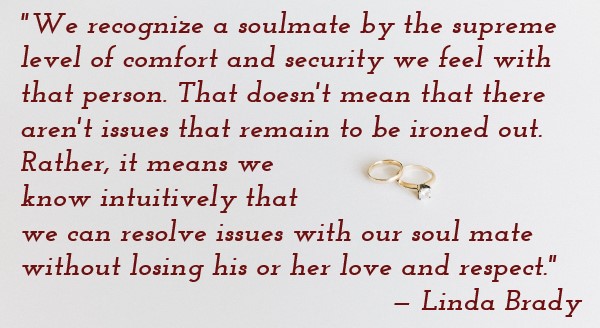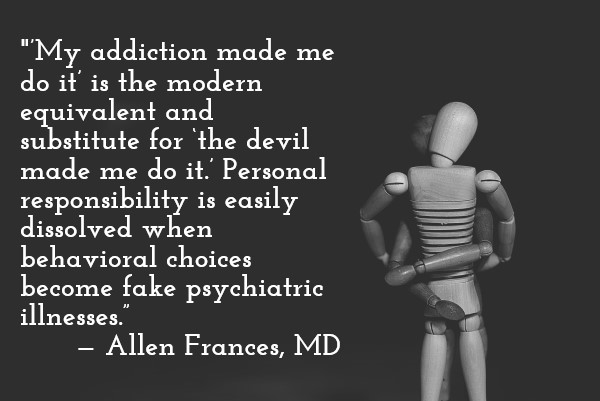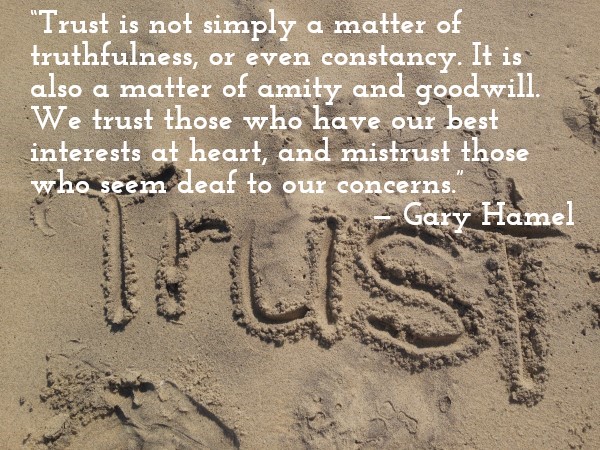Have you ever heard anyone say, “I should take my own advice, shouldn’t I!” It turns out that giving advice to others actually can benefit you. A recent study in the journal PNAS showed that giving motivational advice raised academic achievement for the advisor. Here is the thinking about how this works:
- People who advocate for specific opinions or beliefs come to believe what they say to mitigate cognitive dissonance. In other words, if I give someone advice, but I don’t follow it myself, this causes psychological discomfort. This makes it less likely I will not heed my advice.
- The reflection entailed in generating advice may prompt advisors to formulate concrete plans for enacting the recommended behaviors in their own lives. For instance, if my goal is to buy a house, I can think about what advice I would give to someone else in this situation. I will ignore things that are out of their control (and mine). So I might suggest opening a savings account to save for the downpayment and automatically deposit into it, with every paycheck, before spending on anything else. What just happened is that I created a practical plan for reaching my goal!
- Giving advice, unlike taking advice, can increase confidence. It feels good to be able to show expertise and help others. And feeling confident in this way can improve motivation.


So how can this work in your relationship? If you want to improve your relationship in a particular area, say, improving your love life, you could write your own advice column on the subject. You might do some research, see what is out there, and choose some things that make sense to you to include in your column. (By the way, for ideas on this subject check out: “How Healthy is Your Sex Life,” “Sex and Relationships,” and the guide “Things Your Mama Never Told You About Talking Dirty…”).
Once you have your article completed, consider sharing it with your partner and having a conversation about it. Though I would caution against giving your partner advice—if they haven’t asked for advice, it may come across as criticism or worse. Or maybe you have a friend who would be interested in reading it. Or simply write it down in your journal. Whatever you choose to do, check back in a few months and see if you have followed any of your own advice!

Get more like this straight to your inbox!
Plus our exclusive guide Things your mama never told you about talking dirty…
 Dating can be exciting and fun, and being in love can be magical. But is there something you should be doing to see if this is the right person for you? Well, yes, as a matter of fact. Dating is about getting to know one another and, in this way, seeing if there is a good match between you, finding out how compatible you are with one another. Don’t get me wrong, no matter who you partner with, there will be differences that will need to be negotiated. Knowing about these ahead of time, before making a long term commitment, can help you decide if you are a good enough match for one another. This will improve the chance of your relationship being successful in the long term.
Dating can be exciting and fun, and being in love can be magical. But is there something you should be doing to see if this is the right person for you? Well, yes, as a matter of fact. Dating is about getting to know one another and, in this way, seeing if there is a good match between you, finding out how compatible you are with one another. Don’t get me wrong, no matter who you partner with, there will be differences that will need to be negotiated. Knowing about these ahead of time, before making a long term commitment, can help you decide if you are a good enough match for one another. This will improve the chance of your relationship being successful in the long term.

 I love the card deck 52 Questions Before Marriage or Moving In designed by Ursula Burton. The card deck has four categories: romance, social life, work, and money. Each card has questions to help you have meaningful conversations around these topics. For instance, a card under romance asks: “What are your views about having children? Pets? How strong are your positions about this? What, if anything, would change your mind?” Under social life, one card asks: “In what ways do your religious and/or political beliefs and practices, if any, differ from your partner’s? If you have children, with what beliefs and practices will you raise them?” Under work: “What reasons might there be for one or both of you to cut back on work hours or not work for money?” Under money: “How do you feel about any existing debt? About taking on more debt as a couple?”
I love the card deck 52 Questions Before Marriage or Moving In designed by Ursula Burton. The card deck has four categories: romance, social life, work, and money. Each card has questions to help you have meaningful conversations around these topics. For instance, a card under romance asks: “What are your views about having children? Pets? How strong are your positions about this? What, if anything, would change your mind?” Under social life, one card asks: “In what ways do your religious and/or political beliefs and practices, if any, differ from your partner’s? If you have children, with what beliefs and practices will you raise them?” Under work: “What reasons might there be for one or both of you to cut back on work hours or not work for money?” Under money: “How do you feel about any existing debt? About taking on more debt as a couple?”

As you can see, the card deck has great questions and conversation starters to help you explore life together. This will help you understand how good a match you are for one another, and what areas might be challenging to negotiate as a couple. It is crucial to know if there are any “deal breakers” in any of the differences you explore. Deal breakers are differences such that one of you will not be able to meet a core need; for example, one person wants to have kids, the other one does not. But keep in mind, outside of deal-breakers, differences do not mean your relationship won’t work. Differences are unavoidable. It is how you manage these differences—how you talk about them—that makes all the difference in the world. Knowing about these sooner rather than later can help you evaluate the next steps, such as further exploration, getting help from a trusted other to talk about difficult topics, or taking time to do some soul searching about your relationship.

Get more like this straight to your inbox!
Plus our exclusive guide Things your mama never told you about talking dirty…

 Does your partner drive you a bit batty by doing the same thing over and over that they must know by now that it is a pet peeve of yours? Here is a little secret about disagreements with your partner: if the same argument keeps coming up, over and over again, you may be dealing with a “perpetual issue.” Dr. Gottman’s research has shown that perpetual issues make up about 69% of conflict couples have. These are issues that relate to fundamental differences between partners, such as differences in personality or lifestyle preferences.
Does your partner drive you a bit batty by doing the same thing over and over that they must know by now that it is a pet peeve of yours? Here is a little secret about disagreements with your partner: if the same argument keeps coming up, over and over again, you may be dealing with a “perpetual issue.” Dr. Gottman’s research has shown that perpetual issues make up about 69% of conflict couples have. These are issues that relate to fundamental differences between partners, such as differences in personality or lifestyle preferences.

When you are discussing a perpetual issue, the most valuable skill is establishing an ongoing dialogue about the issue. An essential part of this dialogue is to slow down the conversation. The aim is to understand what is going on underneath the surface. Then, with this understanding, explore options to make things better for both of you.

For example, take Joe and Mary. Mary wants to be on time, but Joe has a relaxed stance on timeliness. Is Mary’s need for timeliness about a value like respect? Is there a backstory that can help flesh out what is going on? Is Joe’s underlying value about relaxing and escaping the tyranny of time? Is there a disaster scenario for them around some aspect of this? The possibilities of what could be going on for each person are endless.
When we understand what is going on, for ourselves and our partner, and we both feel heard and understood, avenues for honoring each other’s needs become possible. A deeper understanding will allow you to experiment with possible solutions. But know that you will likely need to return to dialogue when it comes up again. As always, remember to avoid the Four Horsemen (contempt, stonewalling, criticism, and defensiveness).

Let us go back to Joe and Mary. For Mary, timeliness is about keeping her word and being responsible. For her, it is about how disappointed and let down she feels when others fail to show up for her. For Joe, his relaxed stance on time is about not worrying about responsibilities all the time. His story is about how stifling it was to grow up in a house where there was no space made for hanging out and being creative. With this understanding, Joe and Mary discussed ways to manage this difference. One option they came up with is deciding which events will be prioritized for being “on time” and which events both will be “more relaxed” about. They also decided to set up activities that are not bound by a set time frame.

Once you have set up a plan, give yourselves some opportunities to try it out. Come back and talk about it again after a while to see what may need to be adjusted. Remember that this is an ongoing conversation; keep experimenting, building on what you learn along the way.
While some arguments will change over time, others will stay with you as you find ways to deal with them. Keep in mind that differences are inevitable when two people love one another. The important thing is that the positive things about your partner and your relationship can far outweigh these differences.
Get more like this straight to your inbox!
Plus our exclusive guide Things your mama never told you about talking dirty…
Highly unlikely… for starters, “sex addiction” is not mentioned in the current Diagnostic and Statistical Manual of Mental Disorders (DSM-5), which is used to make diagnoses in the United States. The World Health Organization also does not use the term sex addiction in its diagnostic guide (it has “compulsive sexual behavior disorder”).
 How can we know if something (whether heroin, porn, sex, gambling, or alcohol use) is an addiction? According to Prof. Mark Griffiths, there are six criteria to consider: 1) Salience: does it dominate thoughts, feelings, and behavior? 2) Mood modification: is it used to shift mood? 3) Tolerance: are increasing amounts needed to achieve the same effect? 4) Withdrawal: do unpleasant feelings, or physical effects, occur when discontinued or suddenly reduced? 5) Conflict: does it create interpersonal conflict or intrapsychic (internal) conflict? 6) Relapse: is there a tendency for the activity to recur after years of abstinence or control? Another hallmark of addiction, according to Dr. Allen Frances, is that something that may have given pleasure at the beginning now no longer does so, but can’t be stopped. For most people, even though sex may create problems, the act itself remains pleasurable.
How can we know if something (whether heroin, porn, sex, gambling, or alcohol use) is an addiction? According to Prof. Mark Griffiths, there are six criteria to consider: 1) Salience: does it dominate thoughts, feelings, and behavior? 2) Mood modification: is it used to shift mood? 3) Tolerance: are increasing amounts needed to achieve the same effect? 4) Withdrawal: do unpleasant feelings, or physical effects, occur when discontinued or suddenly reduced? 5) Conflict: does it create interpersonal conflict or intrapsychic (internal) conflict? 6) Relapse: is there a tendency for the activity to recur after years of abstinence or control? Another hallmark of addiction, according to Dr. Allen Frances, is that something that may have given pleasure at the beginning now no longer does so, but can’t be stopped. For most people, even though sex may create problems, the act itself remains pleasurable.

I think it is clear that very few people would qualify, given the above criteria, for having a sex addiction. Yes, this behavior can create plenty of problems, but calling it a “sex addiction” may be more about avoiding taking responsibility than about dealing with an addiction. Yet the fallout from an affair is real, regardless of what it might be attributed to. But, if it is not due to “sex addiction,” what is it due to? Most likely, it is about trust, commitment, intimacy—either that these are lacking or are broken—and a host of other related issues.
To save a relationship after an affair takes a lot of work—from both partners. Even then, there is no guarantee of success. It is possible to create a healthy relationship after an affair if both partners are willing to put in the hard work. And for many couples, this is worth doing. It goes without saying that getting help can make a big difference; the-sooner-the-better. If you want to explore this option, contact me for a free phone consultation.

Get more like this straight to your inbox!
Plus our exclusive guide Things your mama never told you about talking dirty…

Everyone has some sense of what trust means in relationships. As it is a vital part of any healthy relationship, it is worth taking a look at. When trust is broken, any relationship is in serious trouble and likely to end.
 Take Judy, for example, who was in a relationship with a partner who cheated on her. For a long time, she wasn’t able to trust her partners as this experience “infected” her with jealousy and lack of trust. Years later she fell in love with Jack and she told him about her earlier experiences and her “hypersensitivity”—which, in this case, means being vigilant about something painful that has happened in the past. For Judy, this came not only from her prior cheating partner’s behavior but also from her father’s infidelity to her mother. Jack asked what it would take for her to trust him. She thought about it and asked that they have a “no secrets” policy; for her, this meant no secret passwords, Jack always being available by phone, and no repeated meals or business trips with attractive women. He was willing to meet all of her conditions and then some. Not only did Judy eventually stop being suspicious and jealous, but over time she was able to relax some of the conditions she had needed before.
Take Judy, for example, who was in a relationship with a partner who cheated on her. For a long time, she wasn’t able to trust her partners as this experience “infected” her with jealousy and lack of trust. Years later she fell in love with Jack and she told him about her earlier experiences and her “hypersensitivity”—which, in this case, means being vigilant about something painful that has happened in the past. For Judy, this came not only from her prior cheating partner’s behavior but also from her father’s infidelity to her mother. Jack asked what it would take for her to trust him. She thought about it and asked that they have a “no secrets” policy; for her, this meant no secret passwords, Jack always being available by phone, and no repeated meals or business trips with attractive women. He was willing to meet all of her conditions and then some. Not only did Judy eventually stop being suspicious and jealous, but over time she was able to relax some of the conditions she had needed before.

In relationships, trust occurs when we know our partner acts and thinks to maximize our best interests and benefits, not just their own. It’s that sense that our partner has our back and is there for us and is willing to be consistent in meeting our needs. The first step in building this kind of trust is listening with compassion and understanding to one another, just as Jack did for Judy.
Did you notice the listening part above? Learning how to be a great listener is a skill you can work on. Start with this simple listening exercise to help you become a great listener. As to compassion and understanding, stay tuned for more…
Get more like this straight to your inbox!
Plus our exclusive guide Things your mama never told you about talking dirty…
Stay up to date with relationship tips and more
Plus our exclusive guide Things your mama never told you about talking dirty…

